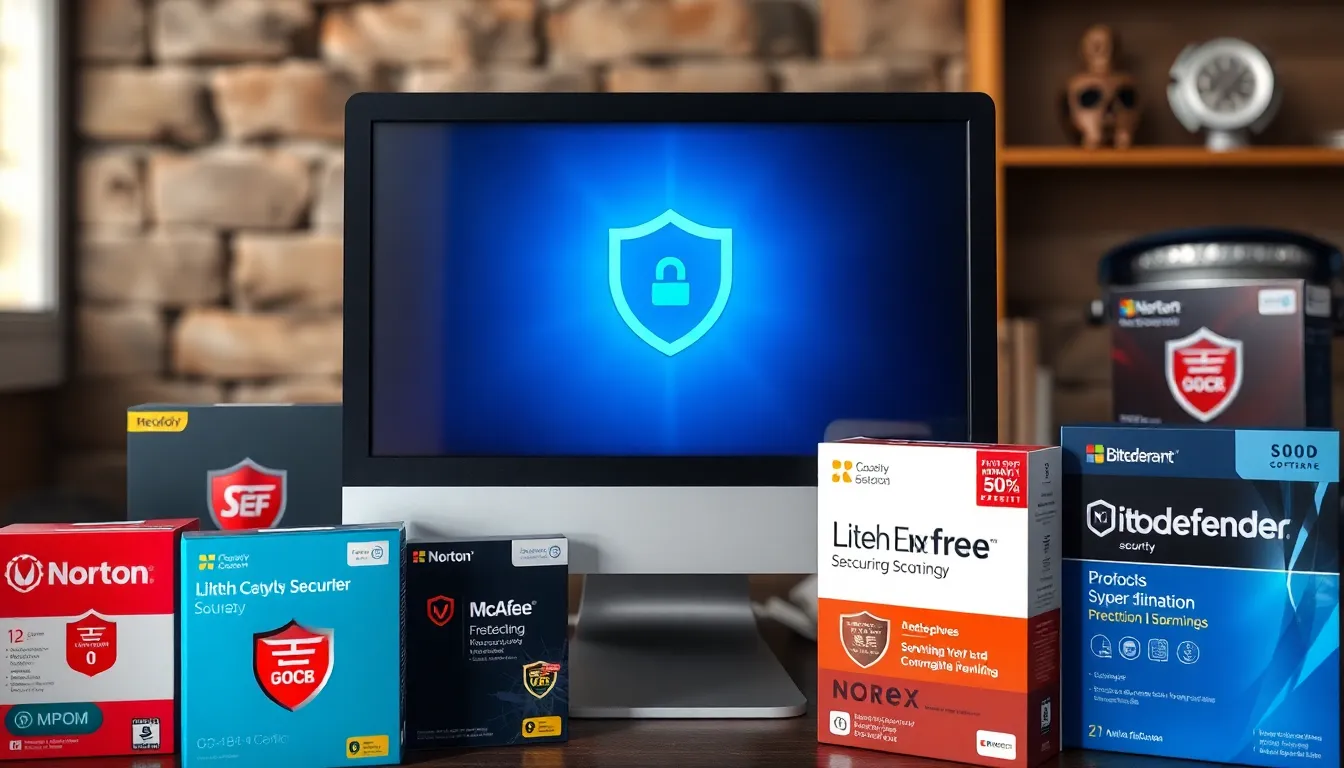In a world where cybercriminals lurk around every digital corner, security software is like a superhero cape for your devices. It fights off the villains trying to steal your data while you binge-watch your favorite shows. Who knew that protecting your online life could be as essential as remembering to wear pants during a video call?
But not all security software is created equal. Some are like the trusty sidekick that always has your back, while others are more like that friend who borrows your favorite shirt and never returns it. Choosing the right security solution can feel overwhelming, but it’s crucial for keeping your personal information safe and sound. So, let’s dive into the world of security software and find out how to keep those pesky hackers at bay without sacrificing your sanity or sense of humor.
Table of Contents
ToggleOverview of Security Software
Security software acts as a barrier against cyber threats, providing crucial protection for devices and personal information. Various types of software exist, including antivirus programs, firewalls, and anti-malware tools. Each option serves a unique purpose, and the effectiveness varies among different brands and solutions.
Antivirus software targets viruses and worms, actively scanning and removing harmful code. Firewalls create a barrier between trusted networks and untrusted ones, preventing unauthorized access. Anti-malware tools specialize in detecting and removing malware, which includes spyware and ransomware.
Choosing reliable security software involves considering key factors. The user interface matters; a simple, intuitive design ensures ease of use. Performance also plays a critical role, as efficient software should run quietly without slowing down the system. Regular updates enhance security, addressing newly discovered vulnerabilities and threats.
Evaluating user reviews helps in understanding software reliability. Some users highlight effective customer support as an essential feature. Compatibility with various operating systems and devices is another aspect to review; cross-platform solutions often provide more extensive protection.
Investing in reputable security software is crucial for anyone concerned about digital safety. The right choice can prevent data breaches, identity theft, and financial loss. Researching and comparing options ensures a well-informed decision, leading to a safer online experience.
Types of Security Software

Security software includes several essential tools, each addressing specific cyber threats. Understanding these tools helps users select the right solutions for robust protection.
Antivirus Software
Antivirus software protects devices from viruses and worms. This software scans files for malicious content and offers real-time protection against threats. Users benefit from automatic updates that enhance malware detection capabilities. Some antivirus programs also include features like email protection and safe browsing tools, offering comprehensive defense. Popular antivirus offerings include Norton, McAfee, and Bitdefender, each with unique features that cater to different user needs.
Firewall Protection
Firewall protection serves as a barrier between trusted and untrusted networks. It monitors incoming and outgoing traffic to prevent unauthorized access to devices and networks. Users can choose between software firewalls installed on individual devices and hardware firewalls embedded in routers. Advanced firewalls can also offer intrusion detection and prevention features. Notable options include Windows Defender Firewall and ZoneAlarm, both of which provide robust security tailored to user requirements.
Anti-Malware Solutions
Anti-malware solutions focus on detecting and removing various forms of malware. Unlike traditional antivirus programs, these tools address specific threats like spyware, adware, and ransomware. Users gain additional layers of protection by employing anti-malware alongside antivirus software. Many anti-malware tools provide scheduled scans and automatic updates to catch emerging threats. Examples include Malwarebytes and Spybot, both known for their effectiveness in combating malware.
Features to Consider
Selecting security software requires careful consideration of various features to ensure optimal protection. Key attributes, such as real-time protection and system compatibility, play significant roles in the effectiveness of the chosen solution.
Real-Time Protection
Real-time protection is essential for thwarting threats before they cause damage. This feature actively scans files and internet traffic, blocking malware and viruses in real-time. Effective security software provides ongoing monitoring, alerting users of potential threats immediately. Without this functionality, systems remain vulnerable to cyberattacks. Research indicates that programs with strong real-time protection reduce infection rates substantially. For instance, solutions like Norton and Bitdefender consistently outperform competitors in this area. Users rely on continuous security to confidently browse online.
System Compatibility
System compatibility ensures software functions seamlessly across different devices and operating systems. Security solutions must support various platforms, such as Windows, macOS, Android, and iOS. Failing to consider compatibility limits overall protection and access. Reliable security software adapts easily to diverse environments, providing users with flexibility. Notably, popular choices like Malwarebytes and McAfee offer cross-platform support. Evaluating compatibility allows individuals to maintain security across all devices, preventing potential vulnerabilities. Users engaged with multiple devices must prioritize this feature to ensure comprehensive safety.
Top Security Software Options
Several excellent security software options exist to protect devices from cyber threats. Each option provides distinct features catering to varying user needs.
Norton
Norton stands out due to its comprehensive real-time protection capabilities. Users benefit from advanced threat detection, blocking malware before it causes damage. This software excels in performance, consistently ranking high in industry tests. Customers often praise its user-friendly interface, making navigation simple. Regular updates keep the software effective against emerging threats. Norton offers additional features like a VPN and password manager, enhancing user security further.
McAfee
McAfee is notable for its extensive cross-platform compatibility, supporting multiple devices seamlessly. Users appreciate the all-in-one suite that includes antivirus, firewall, and web protection features. The software also provides identity theft protection, which is crucial for safeguarding personal information. Its performance remains reliable, with minimal impact on system speed noted during testing. Regularly scheduled updates ensure users maintain protection against the latest attacks, reinforcing its standing among security solutions.
Bitdefender
Bitdefender delivers exceptional malware detection and removal, frequently topping performance charts. Users gain access to advanced features like anti-phishing and ransomware protection, enhancing overall security. The software’s interface is intuitive, allowing easy navigation for all skill levels. Consistent updates keep the software optimized against evolving threats, ensuring user safety. Bitdefender’s VPN feature also adds an extra layer of privacy, making it a strong contender in the security software market.
Choosing the right security software is vital for online safety. With the ever-evolving landscape of cyber threats it’s essential to invest in reliable solutions that offer comprehensive protection. By considering factors like real-time protection and system compatibility users can make informed decisions that suit their needs.
Top options like Norton McAfee and Bitdefender provide robust features that cater to various requirements. Prioritizing effective customer support and user-friendly interfaces enhances the overall experience. Ultimately a proactive approach to security software not only protects personal information but also fosters peace of mind in an increasingly digital world.




